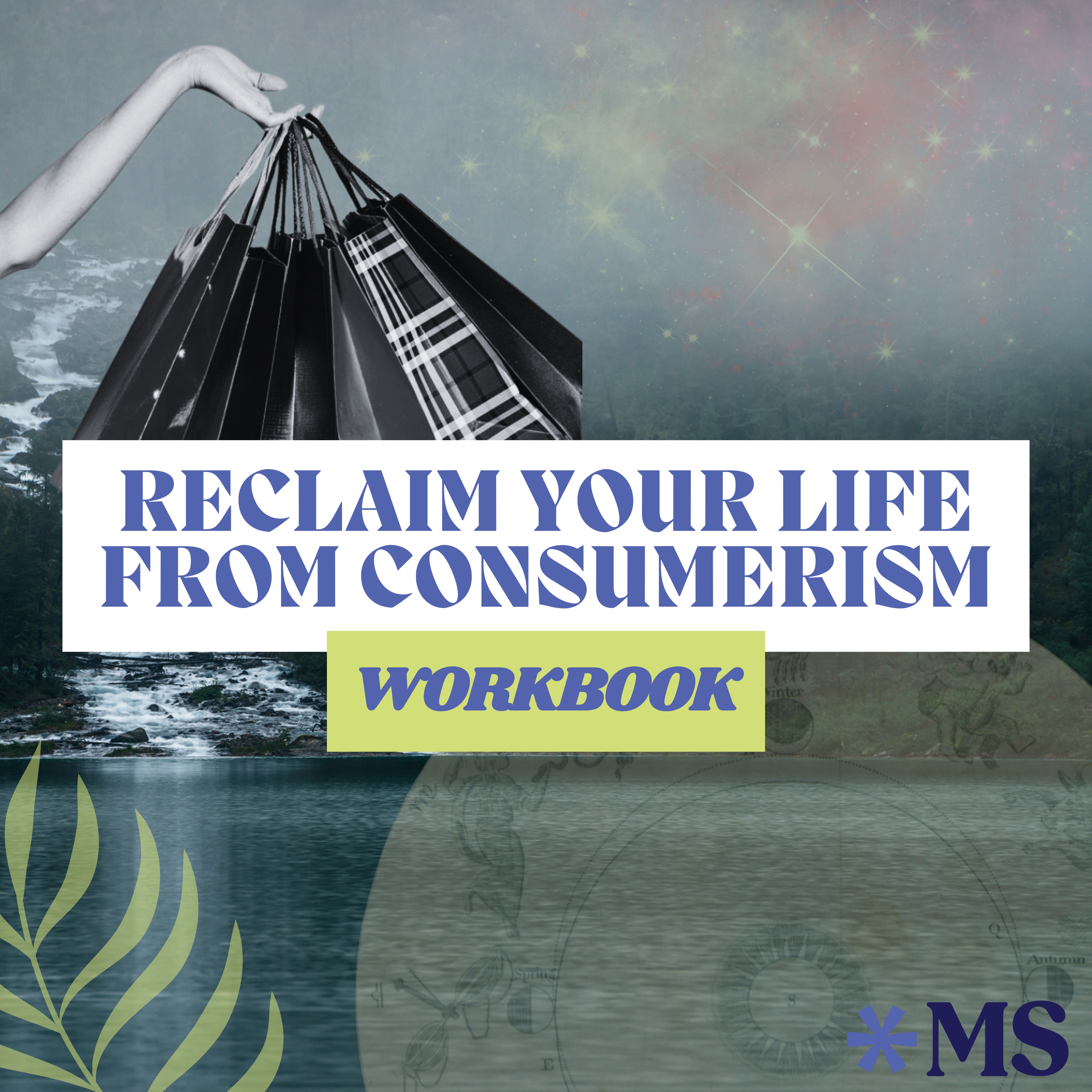Buy Now: A love affair between Capitalism and Consumerism
Consumerism is more than just a tendency to shop; it’s a societal system where acquiring goods and services is not only encouraged but celebrated. At its core, consumerism equates material possessions with success, happiness, and identity. Consumerism drives much of modern culture, while minimalism offers a stark contrast, advocating for intentional living with fewer possessions. Its philosophy prioritizes quality over quantity and emphasizes personal fulfillment beyond material wealth.
The new Netflix documentary Buy Now delves deep into this dichotomy, exploring the modern culture of over-consumption. Through compelling narratives and expert insights, it reveals the intricate relationship between capitalism and consumerism and the toll it takes on individuals and the planet. Let’s unpack this love affair and explore why it might be time to reconsider our approach to “more.”
The Relationship Between Capitalism and Consumerism
Capitalism is an economic system that relies on continuous consumer demand. Without it, businesses falter, economies stagnate, and growth slows. But how does capitalism sustain this relentless cycle? The answer lies in its strategic partnership with consumerism.
Planned Obsolescence: The Engine of Demand
Have you ever wondered why your smartphone starts acting up after a few years or why fashion trends seem to shift more and more rapidly? Planned obsolescence ensures that products are designed with a limited lifespan, nudging consumers to replace rather than repair. The mantra of “new and improved” keeps us returning for the latest gadgets, styles, and innovations, fueling a perpetual buying cycle.
Psychological Tactics in Marketing
Marketing is not just about showcasing a product - it’s about creating desire. Scarcity tactics, such as “limited-time offers,” exploit our fear of missing out (FOMO), while aspirational advertising suggests that owning certain products will elevate our status or happiness. These psychological triggers manipulate our emotions, making us more susceptible to impulse purchases.
Social Status and Identity
Consumerism feeds into the deeply ingrained idea that our possessions define us. From luxury cars to designer clothing, material goods become symbols of success which creates a cycle of “keeping up with the Joneses.” This endless pursuit of status through consumption ensures that demand never wanes, even as it leaves many feeling unfulfilled.
Consequences of Consumerism
While consumerism drives economic growth, it comes with significant environmental, financial, and emotional costs.
Environmental Impact
The culture of over-consumption contributes to overflowing landfills, resource depletion, and unsustainable production cycles. Fast fashion, for example, produces staggering amounts of waste and pollution, while the constant demand for electronics strains precious mineral resources. Each purchase contributes to a larger ecological footprint, raising urgent questions about sustainability.
Human Exploitation
Our consumerism comes at the cost of human exploitation. Many industries rely on underpaid labor in unsafe working conditions to produce cheap and disposable products on a large scale. Workers, particularly in developing countries, endure long hours and meager wages, while the corporations that profit from their labor face little accountability. Reports of unsafe working conditions in the fast fashion industry are rampant, and the resource extraction required by the consumer electronics industry frequently involves child labor in dangerous working conditions. Those who are exploited by these industries pay the real price for our cheap goods.
Financial Strain
Consumerism often leads to spending beyond one’s means, resulting in mounting debt and financial pressure. Credit cards and buy-now-pay-later schemes make spending money we don’t have easier than ever, trapping many in a cycle of financial stress. The pressure to keep up with societal norms and appearances only exacerbates this burden.
Emotional and Psychological Toll
Beyond the tangible costs, consumerism takes a toll on mental well-being. Clutter from excessive possessions can cause stress and decision fatigue, while the fleeting dopamine hit from shopping leaves many chasing a hollow sense of happiness. Does the stuff we buy truly make us happier? More often than not, the answer is no.
Minimalism as a Counter-Culture Movement
Minimalism is a powerful response to consumerism's excesses. At its heart, minimalism is about intentionality - making deliberate choices about what we own and why.
What Is Minimalism?
Minimalism isn’t about deprivation; it’s about freedom. Focusing on what truly adds value to our lives allows us to break free from the consumerist mindset. This philosophy prioritizes experiences, relationships, and personal growth over the accumulation of material goods.
Why Minimalism Works
Living with less offers numerous benefits:
Financial Savings: Spending less on unnecessary items leaves more room for savings or meaningful investments.
Reduced Stress: Fewer possessions mean less clutter, leading to a more organized and peaceful environment.
Environmental Sustainability: By consuming less, we reduce waste and conserve resources.
For many, minimalism isn’t just a choice; it’s a necessity. With rising costs of living, adopting a minimalist lifestyle can be a practical way to navigate financial challenges while embracing a more intentional way of life.
Making Minimalism Cool
Minimalism doesn’t have to be about austerity; it can be about creativity and empowerment. Whether it’s upcycling what you already have or supporting sustainable brands, under-consuming can be both stylish and impactful. Imagine a world where living with less becomes a trend - not out of necessity, but because it’s a smarter, more fulfilling way to live.
Conclusion
How did we become so obsessed with “more”? The answer lies in the complex interplay between capitalism and consumerism, which has conditioned us to equate material possessions with happiness and success. However, as the Netflix documentary Buy Now highlights, this pursuit often leaves us feeling empty and disconnected.
The good news? We have the power to break free. By embracing minimalism and making intentional choices about what we consume, we can reclaim our lives from the relentless demands of consumerism. Start small: reflect on your recent purchases and consider their true value.
Ready to explore this journey further? Watch Buy Now on Netflix, and stay tuned for our next blog post, where we’ll discuss mindfully reclaiming your life from consumerism. If you are a socially conscious Canadian business owner who is looking for a CPA, reach out to me HERE.


